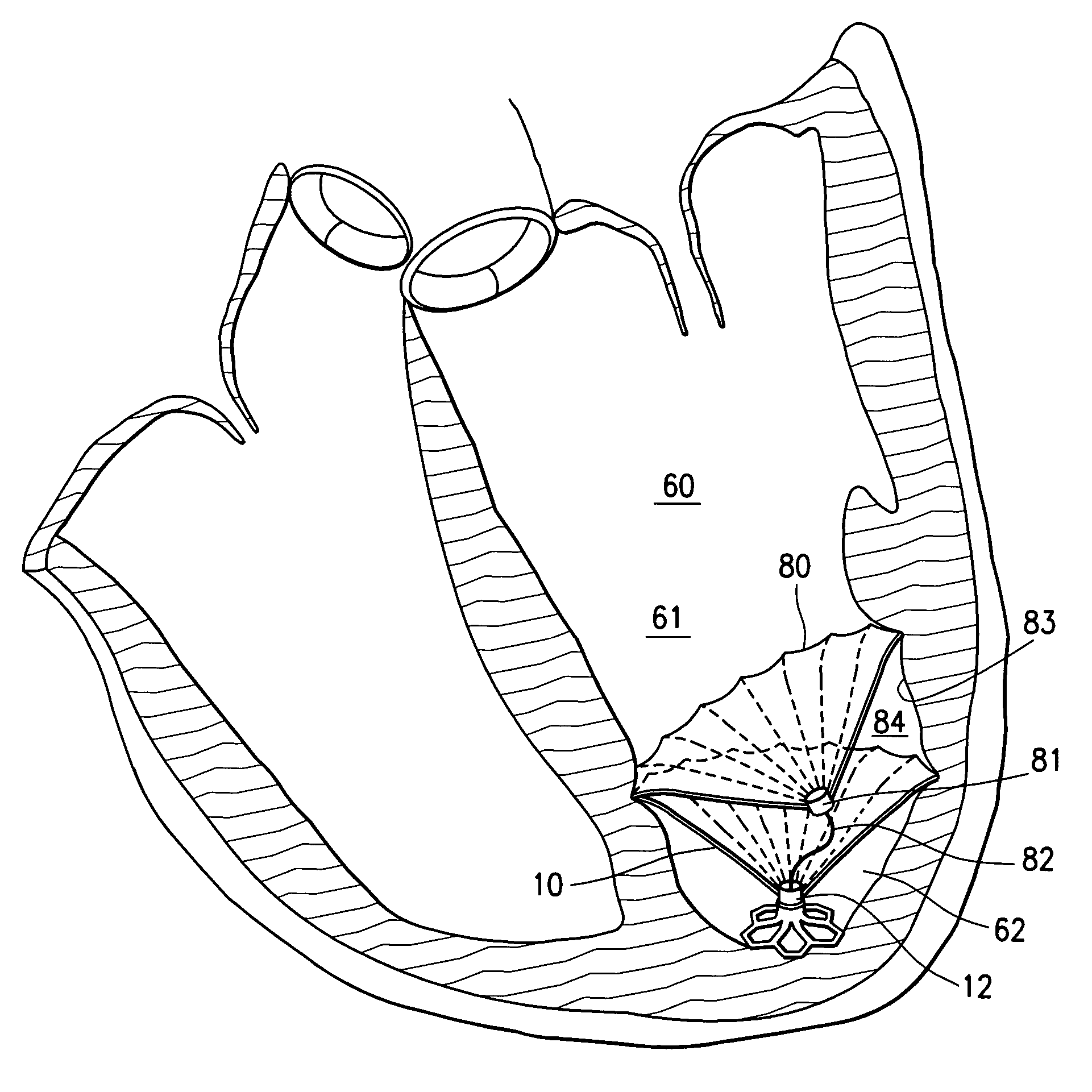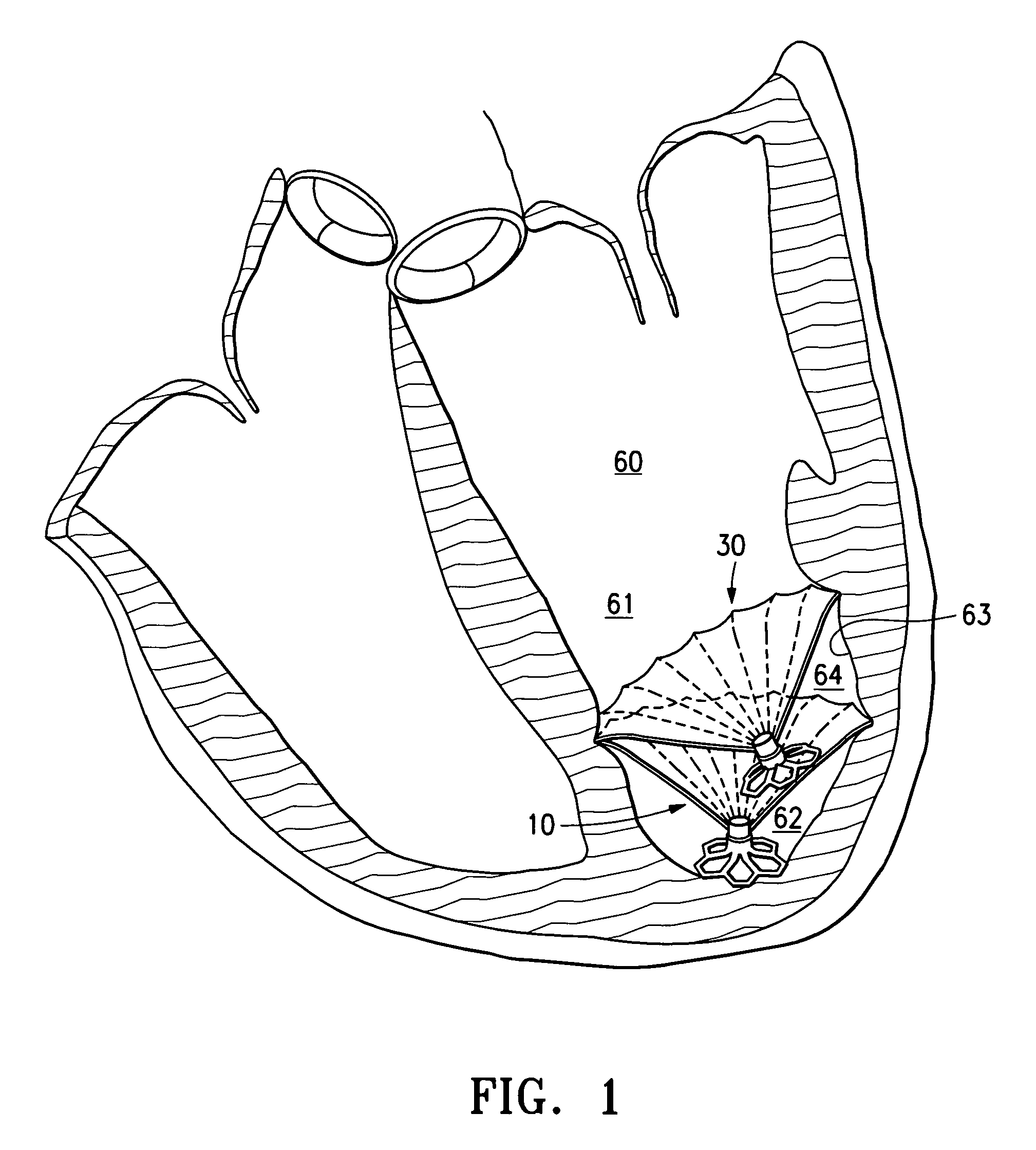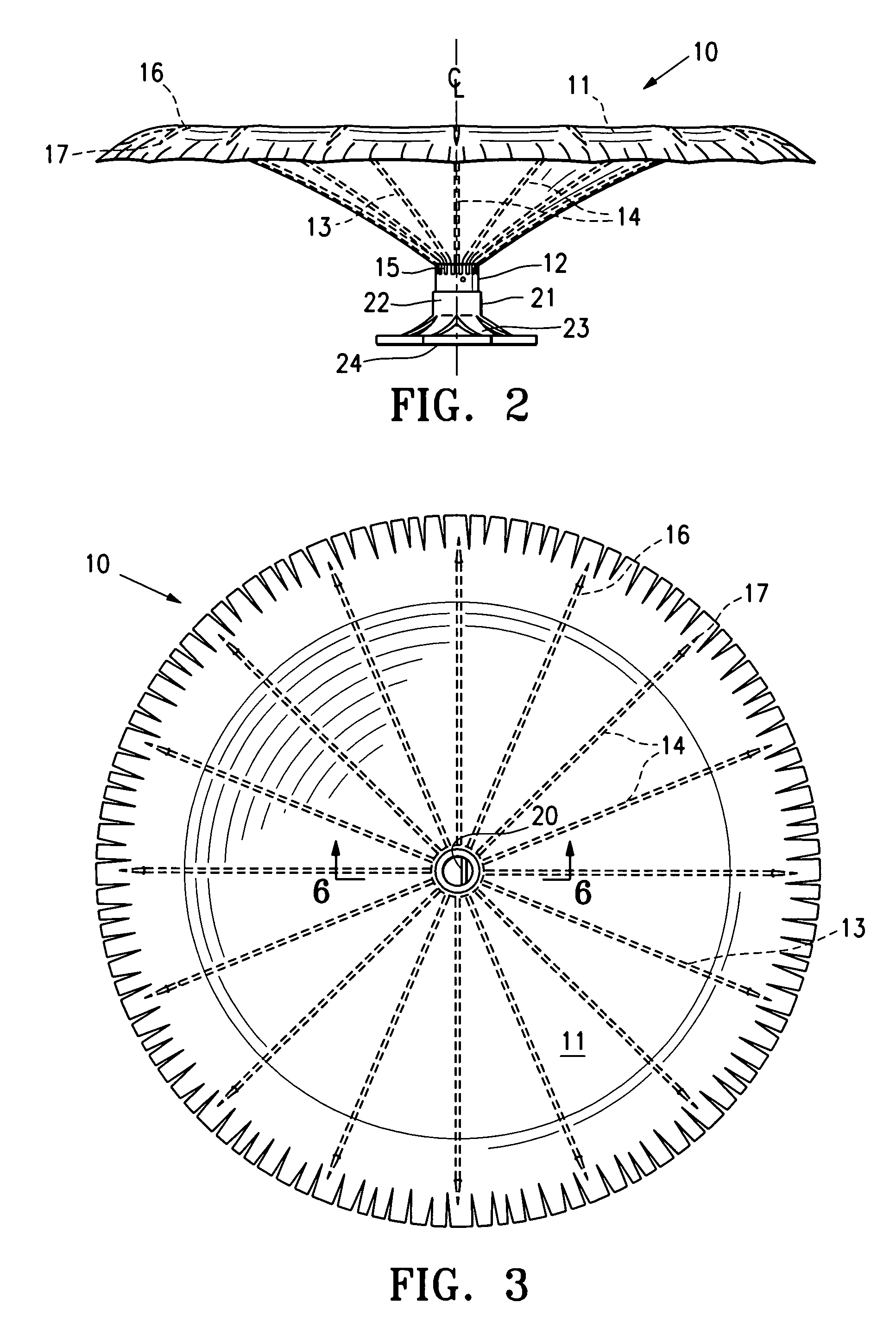Multiple partitioning devices for heart treatment
a multi-partitioning device and heart technology, applied in the field of heart treatment, can solve the problems of heart becoming ineffective as a pump, enlarged heart, and inability to efficiently pump blood forward with each heart beat, so as to reduce the total volume of the heart chamber, improve the ejection fraction and blood flow thereof, and reduce the stress applied to the heart
- Summary
- Abstract
- Description
- Claims
- Application Information
AI Technical Summary
Benefits of technology
Problems solved by technology
Method used
Image
Examples
Embodiment Construction
[0031]FIG. 1 illustrates a pair of partitioning devices 10 and 30 which are secured within a patient's heart chamber 60 (left ventricle) to partition the heart chamber into a productive portion 61 and a non-productive portion 62. The first partitioning device 10 is deployed at the apex of the heart chamber 60 and the second partitioning device 30 is deployed on top of the first device at a slight angle with respect to the first partitioning device to cover a damaged or weakened region 63 of the heart wall and define at least in part an additional non-productive portion 64 of the patient's heart chamber. In FIG. 1 the first and second partitioning devices 10 and 30 have essentially the same design and are independent from each other. The physician or other operating personnel may determine before or during the partitioning procedure that the first partitioning device 10 by itself will not adequately partition the heart chamber 60 and that a second partitioning device 30 may be needed...
PUM
 Login to View More
Login to View More Abstract
Description
Claims
Application Information
 Login to View More
Login to View More - R&D
- Intellectual Property
- Life Sciences
- Materials
- Tech Scout
- Unparalleled Data Quality
- Higher Quality Content
- 60% Fewer Hallucinations
Browse by: Latest US Patents, China's latest patents, Technical Efficacy Thesaurus, Application Domain, Technology Topic, Popular Technical Reports.
© 2025 PatSnap. All rights reserved.Legal|Privacy policy|Modern Slavery Act Transparency Statement|Sitemap|About US| Contact US: help@patsnap.com



